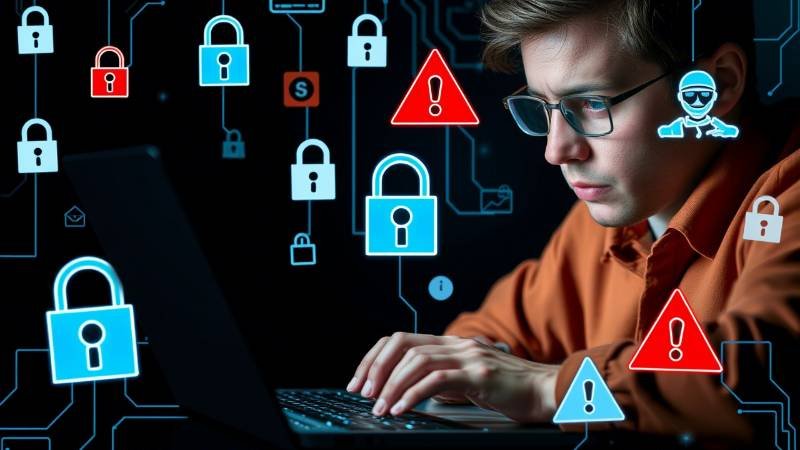A cyber background check is a process of investigating someone’s online history to verify their identity, reputation, and past behavior. Unlike traditional background checks that focus on criminal records or employment history, cyber background checks dig into digital footprints. This includes social media activity, forum posts, public records, and other online data. Employers, landlords, and even individuals use these checks to make informed decisions about hiring, renting, or forming relationships.
With the rise of social media and digital communication, people leave behind vast amounts of information online. A cyber background check helps gather and analyze this data to assess risks or confirm credibility. For example, an employer might check a candidate’s LinkedIn profile for professional history or scan their Twitter feed for controversial posts. These checks help prevent fraud, protect company reputation, and ensure safety.
Why Are Cyber Background Checks Important?
Cyber background checks are crucial in today’s digital world because they help uncover hidden risks. Many people present themselves differently online than in real life. A job applicant might seem perfect on paper but could have a history of harmful behavior on social media. By conducting a cyber background check, employers can avoid hiring someone who might damage their business.
Landlords also benefit from these checks. Renting a property to someone with a history of online scams or aggressive behavior can lead to problems. A quick search might reveal past complaints or fraudulent activities that wouldn’t appear in a standard credit check. Similarly, individuals use cyber background checks before entering personal or business relationships to ensure trust and safety.
Another key reason for these checks is compliance with industry regulations. Some jobs, especially in finance or healthcare, require strict vetting processes. Cyber background checks help companies meet legal requirements while minimizing risks of data breaches or unethical behavior.
How Do Cyber Background Checks Work?
Cyber background checks involve several steps to gather and analyze online data. The process starts with collecting basic information like a person’s name, email address, or phone number. This data is then used to search through social media platforms, public records, forums, and other online sources.
Specialized software and tools help automate the process by scanning multiple platforms at once. These tools flag concerning content such as hate speech, illegal activities, or false information. Some checks also include dark web scans to see if a person’s data has been involved in breaches or sold illegally.
After gathering the information, a detailed report is generated. This report highlights key findings, such as inappropriate posts, fake profiles, or signs of fraudulent behavior. Employers or other decision-makers review this report to determine if the person is trustworthy.
Legal and Ethical Considerations
While cyber background checks provide valuable insights, they must be conducted legally and ethically. Privacy laws vary by country and state, so it’s important to follow regulations like the General Data Protection Regulation (GDPR) in Europe or the Fair Credit Reporting Act (FCRA) in the U.S.
Employers must inform candidates if a cyber background check will be performed and obtain their consent. Using hidden methods or hacking into private accounts is illegal and can lead to lawsuits. Additionally, decisions should not be based solely on online activity without proper context. A single controversial post from years ago may not reflect a person’s current character.
Ethical concerns also include avoiding discrimination. Employers should not reject candidates based on personal beliefs, political views, or lifestyle choices unless they directly impact job performance. Transparency and fairness are key to maintaining trust and compliance.

Benefits of Cyber Background Checks
One major benefit of cyber background checks is risk reduction. Companies can avoid hiring individuals with a history of cyberbullying, harassment, or fraud. This protects the workplace environment and prevents potential legal issues.
Another advantage is reputation protection. Businesses rely on their public image, and one problematic employee can cause significant damage. By screening social media and online behavior, companies ensure their team aligns with their values.
Cyber background checks also save time and money. Traditional background checks can take days or weeks, while online searches provide instant insights. Automated tools make the process efficient, allowing employers to make faster decisions without compromising accuracy.
Limitations of Cyber Background Checks
Despite their benefits, cyber background checks have limitations. Not everything online is accurate or up-to-date. Fake profiles, mistaken identities, and outdated information can lead to false conclusions. It’s important to verify findings before making final decisions.
Another challenge is the lack of standardization. Different tools and services may produce varying results, making it hard to compare data. Employers should use reliable sources and cross-check information when possible.
Privacy concerns also play a role. Some people use aliases or strict privacy settings, making it difficult to gather complete information. Over-reliance on cyber checks without traditional methods like reference calls can result in incomplete assessments.
Best Practices for Conducting Cyber Background Checks
To get the most out of cyber background checks, follow best practices. First, use reputable tools and services that comply with privacy laws. Avoid invasive methods that violate personal rights.
Second, focus on relevant information. Not every social media post matters—look for patterns of harmful behavior rather than isolated incidents. Consistency over time is a better indicator of character.
Third, always get consent. Inform candidates or tenants about the check and explain how the data will be used. This builds trust and ensures legal compliance.
Finally, combine cyber checks with traditional methods. Interviews, reference checks, and criminal record searches provide a fuller picture than online data alone.
Conclusion
Cyber background checks are a powerful tool for making informed decisions in hiring, renting, and relationships. They help uncover digital footprints that traditional checks might miss, reducing risks and protecting reputations. However, they must be used ethically and legally, with respect for privacy and fairness. By following best practices and combining multiple vetting methods, individuals and businesses can make safer, smarter choices in an increasingly digital world.




